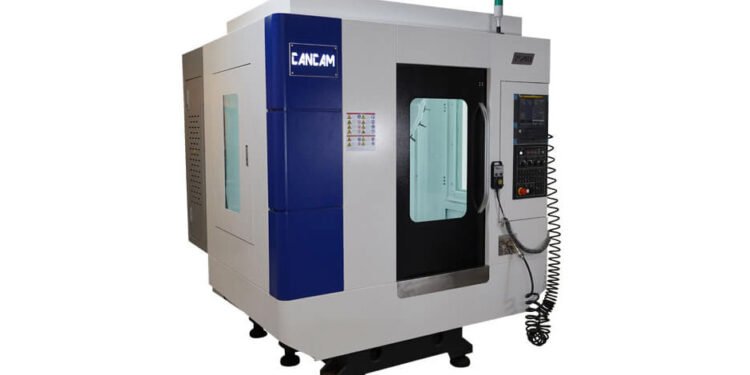When setting up or upgrading your metalworking operation, choosing the right CNC machine is one of the most important decisions you’ll make. The right machine, such as router cutters, enhances efficiency, ensures high-quality results, and can streamline production costs. Here are seven essential tips to guide you in selecting the ideal metal CNC machine for your needs.
1. Determine Your Specific Application Needs
The first step is identifying what you need the CNC machine to accomplish. Consider the materials you work with, as certain machines are better suited for specific metals like aluminum, steel, or titanium. Additionally, your intended projects—whether they’re precision parts, large components, or intricate designs—will influence the machine size, power, and features you require. Researching CanCam CNC Machines can provide a solid starting point, especially for models that meet diverse application demands.
2. Consider Machine Size and Workspace Requirements
CNC machines come in a range of sizes, from compact desktop models to large industrial systems. Choosing the right size depends on your available workspace and the dimensions of the materials you plan to process. Smaller machines may be ideal for custom or intricate work in limited spaces, while larger machines provide the power and capacity to handle larger sheets of metal and high-output demands. Carefully measure your available space to ensure that the machine will fit comfortably and operate efficiently.
3. Evaluate Power and Speed Specifications
The power, or torque, of a CNC machine affects how effectively it can cut through different types of metal. If your projects involve harder metals or thicker materials, look for machines with higher torque and cutting power to ensure smooth and accurate cuts. Additionally, consider the spindle speed; higher speeds allow for faster cuts, which is beneficial for large projects, while lower speeds can provide finer control for intricate designs. Finding the right balance between power and speed is key to meeting your project goals efficiently.
If your work emphasizes turning and rotational parts, it can be useful to consider pre-owned machines that offer multi-axis turning and a wide spindle-speed range to match both throughput and precision needs. When evaluating such options, pay close attention to features like tailstock presence, live tooling, and spindle horsepower, since these determine capability on bar work and heavy cuts. Listings of Pre-Owned and Used CNC Lathe Machines that include verified specs and inspection notes make it easier to compare models objectively. That documentation helps you select a lathe that meets size, speed, and tolerance requirements without unexpected downtime from undocumented wear.
4. Look at Software Compatibility and Usability
The software that operates a CNC machine can make a significant difference in your workflow. User-friendly software with intuitive controls and robust features allows for easier project setup, monitoring, and adjustments. Some machines may only support specific software, so confirm compatibility with your preferred design programs or file types. Additionally, advanced software features, such as 3D visualization or simulation, can help you detect errors before they happen, saving time and material costs in the long run.
5. Examine Precision and Tolerance Capabilities
Precision and tolerance are critical factors in metalwork, especially for industries like aerospace, automotive, and medical, where exact dimensions are essential. When comparing CNC machines, look at each model’s precision rating, which indicates how closely it can achieve the programmed dimensions. Machines with higher precision and tighter tolerances produce more consistent and high-quality parts, reducing the need for additional manual adjustments and refinements. This factor is crucial if you’re working on high-stakes projects where accuracy is non-negotiable.
6. Consider Maintenance Requirements and Costs
CNC machines require regular maintenance to ensure they function correctly and have a long lifespan. Some machines need frequent lubrication, alignment, and part replacement, which can add to your operational costs. When assessing a CNC machine, inquire about its maintenance needs, the availability of replacement parts, and the ease of accessing these components. Machines with complex maintenance requirements may lead to downtime, so choose one that balances quality with manageable upkeep to keep your operations running smoothly.
7. Factor in Your Budget and Long-Term Investment
While cost is often a primary consideration, avoid selecting a CNC machine based solely on price. A low-cost machine might seem appealing but could lead to higher expenses in the long run due to frequent repairs, lower precision, or limitations in speed and capacity.
Investing in a quality machine with advanced features can result in greater productivity and higher-quality output. Consider your budget carefully, but remember that the right CNC machine is a long-term investment that will pay dividends in efficiency, accuracy, and production quality over time.
Making the Final Choice
Finding the right metal CNC machine involves a blend of careful planning, technical research, and practical budgeting. Taking the time to make an informed decision now will ensure that your CNC machine serves your needs effectively for years to come.












